Can TCM work alongside Western medicine? From pain relief to modern tech, here’s what to know
Find out why more TCM treatments – acupuncture for migraine, post-stroke rehabilitation and cancer-related care as well as Chinese medicine for gastrointestinal disorders and chronic pain – may become part of mainstream healthcare in Singapore.
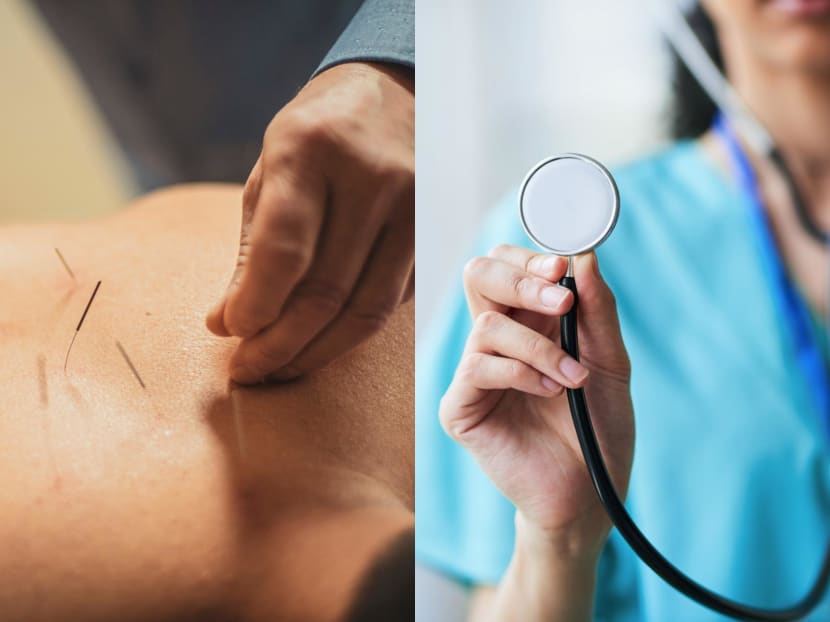
One in five adult Singaporeans use TCM services every year, and nearly 40 per cent of these individuals choose to combine TCM and Western medicine. (Photos: iStock/LukaTDB and Meeko Media)

This audio is generated by an AI tool.
You've got to admit, more people in Singapore are turning to traditional Chinese medicine or TCM to feel better. And it's not only the aunties and uncles; one in five adult Singaporeans use TCM services every year, and nearly 40 per cent of these individuals choose to combine TCM and Western medicine, according to the 2022 National Population Health Survey.
And we aren’t only referring to the tuina and moxibustion (burning dried mugwort near or on specific acupoints to stimulate healing) services offered at TCM clinics and hospitals. Already, you can receive acupuncture, alongside conventional medical services, for your lower back and neck pain at National University Hospital, Singapore General Hospital, Tan Tock Seng Hospital (TTSH), Sengkang General Hospital (SKH) and Khoo Teck Puat Hospital. And the list could eventually grow.
The Ministry of Health (MOH) has been testing and evaluating 18 evidence-based TCM treatments in public hospitals since January 2025 as part of the TCM Integrative Sandbox Initiative. These include acupuncture for migraine, post-stroke rehabilitation and cancer-related care – particularly for chemotherapy-induced side effects and palliative care – as well as using Chinese medicine alongside conventional treatments for conditions such as gastrointestinal disorders and chronic pain.
More is also being done to integrate TCM into Healthier SG; by 2026, TCM practitioners can refer patients to general practitioners “for fully subsidised vaccinations and screenings and chronic disease management, while continuing with TCM care”, said Health Minister Ong Ye Kung.
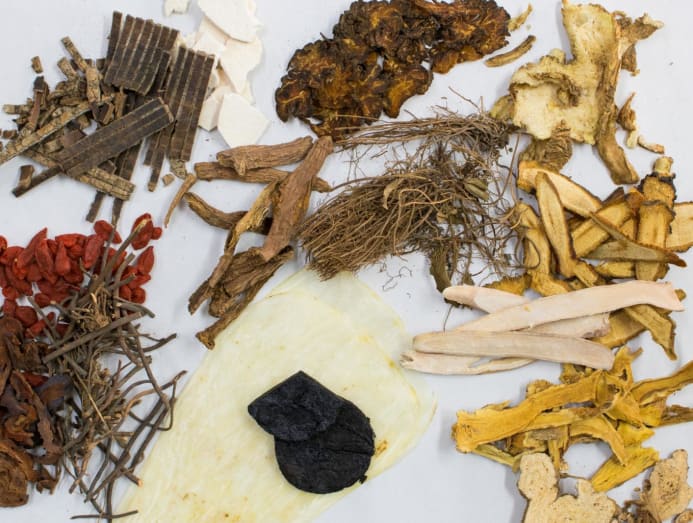
Meanwhile, if you’ve been thinking of giving TCM a go but aren’t sure or you’re a sceptic, here’s a look.
WHY USE TCM?
For seniors, in particular, "the preference for TCM stems from a combination of cultural familiarity, traditional beliefs and positive experiences over the years", said Adele Lau Wan Hui, a senior acupuncturist from SKH's Department of Anaesthesiology, who is also with the Pain Management Centre's Acupuncture Service team.
And it’s not only seniors who use TCM; some younger individuals, “especially those interested in wellness or clean living, may prefer treatments with fewer synthetic chemicals”, observed Teo Pei Si, a TCM physician with Kwong Wai Shiu Hospital’s Traditional Chinese Medicine Centre.
“TCM treatments such as herbal remedies and dietary therapy are often perceived as less harsh than pharmaceuticals,” she said, adding that “some seniors may avoid Western medications due to concerns about side effects”.
Even acupuncture, which involves inserting needles into specific meridian points of the body, is deemed as less invasive and “considered to have fewer harmful effects than pharmaceuticals”, said Teo.
Other patients may decide to try TCM when Western medicine doesn't deliver the outcome they expect such as "minimal pain relief despite taking pain-relief medication", said Tan Weii Zhu, a senior TCM physician with Raffles Chinese Medicine.
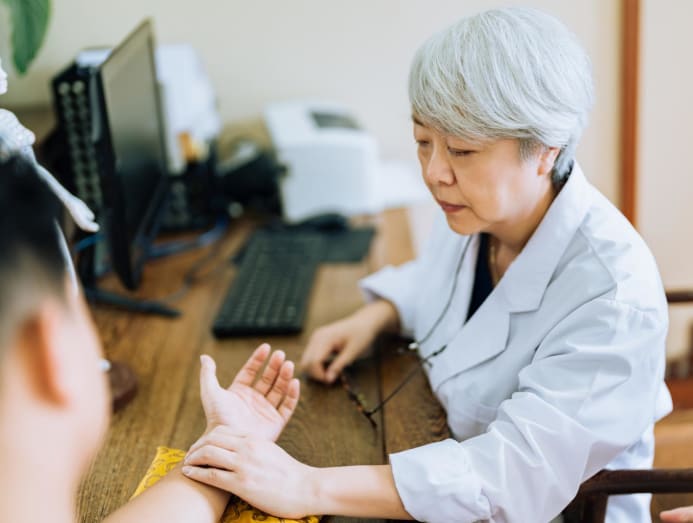
CAN TCM REALLY HELP?
Many associate TCM with strong-smelling ointments and tuina (massage that focuses on acupressure) for the occasional arthritic knee pain and muscle ache. But the 3,000-year-old practice also has a modern role alongside mainstream medical treatments for serious illnesses such as cancer and stroke. To date, it is also used to help with chronic conditions such as hypertension, Type 2 diabetes, insomnia and migraine, to name a few.
TCM treats illnesses differently from Western medicine by “viewing the body in a different way both physiologically and pathologically”, said Tan. “TCM offers a different approach to treating conditions that may not respond well to Western medicine,” she said.
For context, mainstream medicine regards the body as organ- and cellular-based, and diseases are caused by pathogens, genetic defects and organ dysfunction. On the other hand, TCM considers the body as an interconnected system of qi or energy, emotions and external factors such as “wind” and “heat”; illness is the result of an imbalance or blockage of qi and those factors.
But rather than pitting one against the other, healthcare experts from both sides feel that TCM and Western medicine can be complementary.
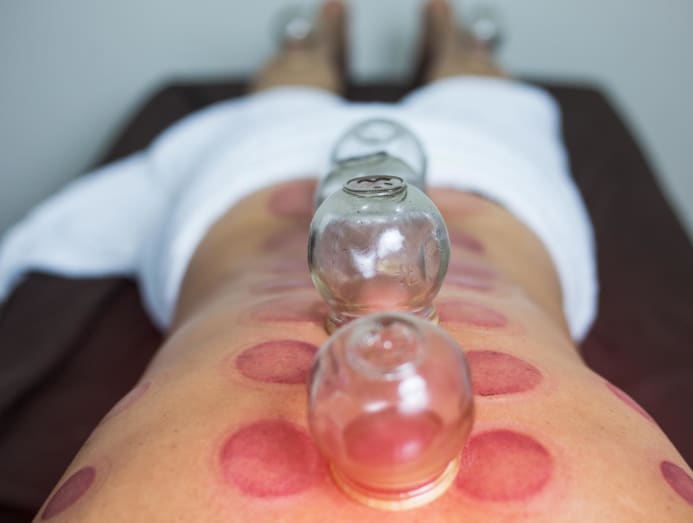
"There still remains in medicine many areas where more research is needed for an effective treatment, or where the standard treatment has complications or side effects too intolerable for patients," said Dr Huang Youyi, an associate consultant with SKH's Department of General Medicine, Rehabilitation Medicine Service.
"That is when TCM can play a bigger role in complementing conventional treatments through holistically supporting and strengthening the body’s innate healing processes, and thereby, improving quality of life," said Dr Huang, who is also a TCM physician.
Take, for instance, cancer-related fatigue caused by conventional treatments such as chemotherapy, radiation therapy, surgery and immunotherapy. A 2025 paper published by the National Cancer Centre Singapore found that the TCM herbal formula known as Xiang Bei Yang Rong Tang, produced “encouraging improvements”.
Acupuncture is another way that TCM can serve as a form of adjunct therapy. It has “proven efficacy, particularly in treating pain such as neck and lower back pain as well as nausea and vomiting, especially those related to chemotherapy and post-surgical procedures”, said Dr Quah Teik Joo, a senior consultant with TTSH's Department of General Medicine, who is also Head of Service with the Complementary Integrative Medicine department.
TCM has also been used to help post-stroke patients. “While Western medicine addresses the structural damage and risk factors such as hypertension and blood clots, TCM focuses on rebuilding the body’s internal balance and accelerating functional recovery,” wrote TCM physician Pansy Yeo on Health365.
Patients with mild to moderate hypertension, particularly those experiencing stress-related symptoms, is another group that may benefit from TCM, said Lau. "Through acupuncture, herbal formulations and lifestyle modifications, TCM can aid in stress management and enhance overall well-being."
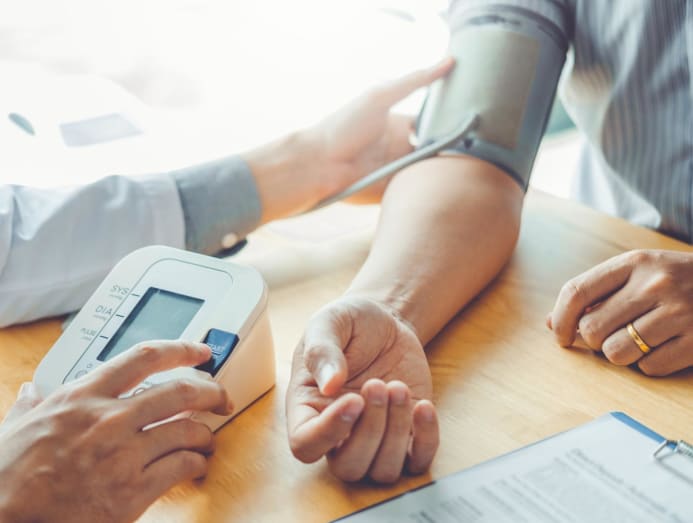
Those with early-stage or well-controlled Type 2 diabetes can better manage symptoms such as fatigue, poor circulation and numbness with TCM as well, said Lau.
For other patients, according to Teo, surgery may be avoided with the use of TCM. “In cases of spinal and joint pain, TCM practitioners may use (the patient’s) medical report to evaluate the condition of the bones and joints, then apply targeted treatments to relieve pain and potentially avoid the need for surgery.”
And yes, TCM practitioners do refer to patients’ medical reports by doctors when treating them. “Based on these findings, TCM practitioners apply appropriate modalities such as Chinese herbs, acupuncture, cupping, scraping, moxibustion or auriculotherapy (also known as ear acupuncture) to help reduce the side effects of mainstream treatments,” Teo said.
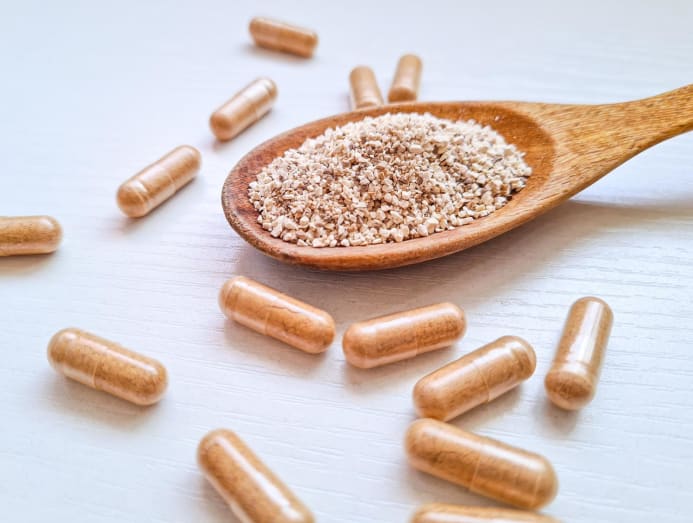
IS TCM STILL ABOUT NEEDLES AND BREWING HERBAL CONCOCTIONS?
“One advancement in TCM is the technology for producing concentrated herbal granules, which has undergone nationwide standardisation in China over the past few years,” said Tan. “This technology produces highly purified and concentrated herbal granules, ensuring safety and enhanced efficacy of herbal prescriptions.”
So, instead of long hours of herb brewing, your TCM prescription can now be conveniently mixed into hot water like instant coffee. Or they could be sealed in capsules for swallowing with water.
Technology has also enhanced certain treatments. Laser acupuncture, for one, uses low-intensity laser instead of needles to stimulate specific acupuncture points. According to TTSH, there is even research into robot-assisted laser acupuncture systems for improved precision as well as developing devices that patients can use at home.
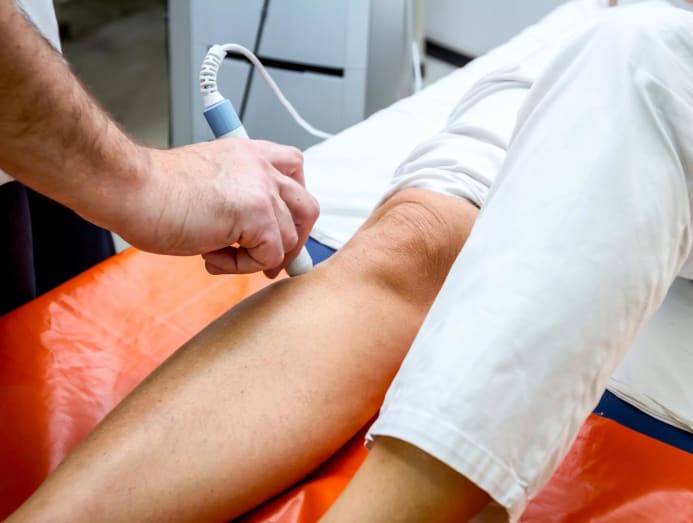
“Electric acupuncture and heat lamp therapy are commonly used technologies in local TCM clinics,” added Teo. “Other emerging technologies, such as electro-moxibustion equipment, robotic masseuses and pulse reading machines, are available on the market but have yet to undergo investigation and approval by the Health Sciences Authority for use in local TCM clinics.”
Even cupping is now machine assisted for enhanced safety, better-controlled suction and to facilitate dynamic cupping, said Teo.
The next frontier will be for TCM to harness the powers of artificial intelligence or AI in healthcare, said Dr Huang. "This can already be seen in budding concepts like Synseh, which uses computer vision and AI algorithms for TCM tongue analysis patterns to explore potential insights into individual wellness patterns."
WHAT SHOULD YOU TAKE NOTE OF WHEN USING TCM?
Dr Quah cautioned patients against forgoing medical checks when they opt for TCM or other types of alternative treatments. You may develop a false sense of comfort when your conditions are not monitored objectively or in a standardised manner, he said.
Moreover, TCM's role remains complementary, said Dr Huang, and should not replace conventional medical care. That means you should still take your insulin shots, blood pressure pills or any medications your doctor prescribe.
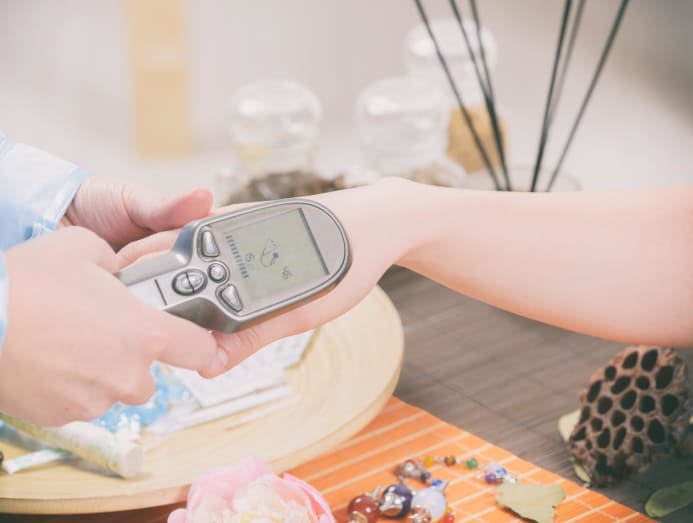
Another thing to be aware of is medication-herb interaction. "Research has suggested several interactions between some commonly used herbs, such as gingko, astralagus (huang qi), reishi mushroom (lingzhi) and conventional medications, whether synergistically or antagonistically so," said Dr Huang. "It is important to avoid self-medicating or mixing remedies without guidance."
Such a concern, said Dr Quah, is the blood-thinning effect caused by the interaction between anti-coagulation medications and herbs to "enhance blood circulation" and "dissolve blood stasis" in the TCM sense. “This combination may result in spontaneous bleeding or excessive bleeding during invasive procedures or surgeries, which is preventable if known early,” he said.
Dr Huang added that "it is essential for patients to inform both their TCM and Western-trained healthcare providers about any herbs, supplements or medications that they are taking".






